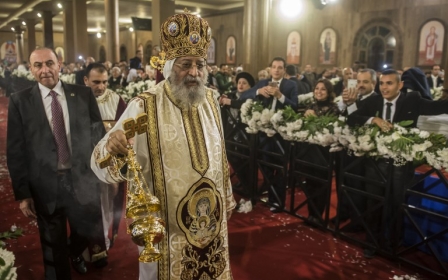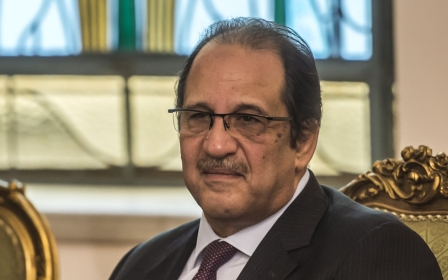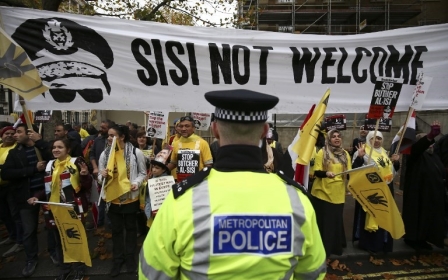Egypt's Sisi signs new law banning 'threatening' websites

A new draconian "cybercrime" law that makes it easier to ban websites and jail or fine the people who run them was announced by Egypt on Saturday.
Egyptian President Abdel Fattah el-Sisi signed off on the law against online activity deemed by authorities a threat to Egypt's national security or economy, the official gazette said.
The punishments cover those who administer such websites, intentionally or "in error without a valid reason".
The law is one of a series of measures that rights groups complain are aimed at curbing freedom of expression online, with the internet one of the last forums for public debate over Sisi's rule.
Egyptian lawmakers last month approved another bill that grants the state's Supreme Council for Media Regulations the right to monitor social media users.
Under that legislation, which Sisi has yet to approve, people whose social media accounts have more than 5,000 followers could be placed under supervision.
The council would be authorised to suspend or block any personal account which "publishes or broadcasts fake news or anything (information) inciting violating the law, violence or hatred".
The authorities have insisted that such measures are needed to help tackle instability and terrorism in the country.
But domestic and international rights activists regularly accuse the government of seeking to crush dissent by arresting activists and bloggers and blocking news sites.
Several prominent Egyptian activists have been arrested by Egypt this year, including Wael Abbas, who was widely known for using the internet to expose police brutality in the country.
In April the editor of the Masr al-Arabia website, Adel Sabri, was arrested and charged with spreading "fake news," and in May satirical video blogger Shady Abu Zeid was arrested during a raid on his home.
More than 500 websites have already been blocked in Egypt prior to the new law, according to the Cairo-based Association of Freedom of Thought and Expression.
Egypt is currently placed 161 out of 180 countries in the press freedom rankings of global media rights organisation Reporters Without Borders.
New MEE newsletter: Jerusalem Dispatch
Sign up to get the latest insights and analysis on Israel-Palestine, alongside Turkey Unpacked and other MEE newsletters
Middle East Eye delivers independent and unrivalled coverage and analysis of the Middle East, North Africa and beyond. To learn more about republishing this content and the associated fees, please fill out this form. More about MEE can be found here.




